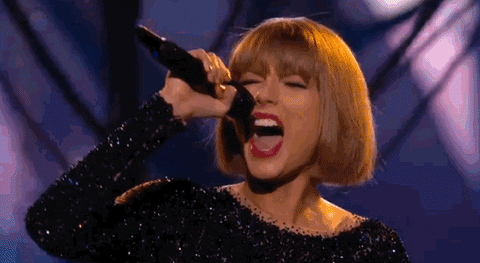“When you think Tim McGraw, I hope you think of me” This week on AP Taylor Swift, we’re going line by line through “Tim McGraw”—the debut single that introduced Taylor Swift to the world. From the country music storytelling structure to the nostalgic time loop embedded in the lyrics, we explore every lyrical shift, hidden meaning, and emotional evolution in the song.
🎧 Listen above and ⬇️ scroll below to read Maansi’s extra credit, where she unpacks what it means to live within a genre.
🎥 Sneak Peek
Catch excerpts from the podcast and behind-the-scenes content on YouTube, TikTok, and Instagram!
🛍️ Shop With Us! Active Discount Codes
As we grow, we are so excited to announce new partnerships! Here you’ll find active discount codes available to our listeners.
📚 Bookshop.org Check out all our book recommendations by episode
🔉Libro.fm Support your local bookstore while listening to great audiobooks
Code: APTS
Offer: Get a free audiobook when you start a new membership (you must use this link!)
Receive 2 audiobook credits for $14.99 USD with your first month of membership.Code: APTS30
Offer: 30% off specific audiobooks in the AP Taylor Swift playlist.
✨ Krowned Krystals Make the whole place shimmer with the best rhinestones
Code: APTS
Offer: 10% off your order when you use the link above
📜 This Week’s Extra Credit by Maansi
On this week’s episode, we traveled back in time to Taylor Swift’s country music beginnings. A lot of artists dabble around in multiple genres, but Taylor Swift has been one of the few to officially announce she is making a deliberate transition to a different genre. I think this is important because it allows us to make comparisons between country Taylor and pop Taylor, and in doing so, understand some of the tools artists use to move between genres.
In her country days, Taylor Swift sang with a twang, had voluminous golden curls reminiscent of a young Dolly Parton, and could be seen with her signature acoustic guitar. She sang of chevy trucks, Georgia stars, and blue jeans. Her songs had an incredible storytelling format that is common in the country music tradition.
Her shift to pop was accompanied by big bold lights, a sleek cropped haircut, and a distinctly different sound. But in many ways, her actual songs and lyrics stayed the same. Pop Taylor has some bangers that follow a typical pop music format with repetitive, catchy lyrics, but a lot of her music still builds characters, tells stories, and conveys great emotion.
Once Taylor officially grounded herself in pop, she was free to continue to experiment with different genres, like her folky-sound in Folklore and Evermore, and some hip-hop, R&B, rock, alternative, EDM sounds in Reputation, Lover, and Midnights. This versatility leads me to question — what truly does it mean to be in a given genre of music? Is being “country” just about having the blond curls and the twang? What parts of Taylor’s music just her personality and talent, and what parts were elements that were layered on to fit within a genre? I was reminded of Beyonce’s quote from the Grammy’s this year.
“I think sometimes genre is a code word to keep us in our place as artists"
One of the reasons Beyonce’s foray into country has been so topical, in my opinion, is because country looked very different on her. Whereas young Taylor very much slipped into the Dolly Parton aesthetic, Beyonce was able to dabble in country music while staying true to herself. Beyonce’s goal with the album was to challenge what it even means to be “country” and reclaim some of the Black history behind the genre, but critics considered it appropriation of country music and honky tonk culture. I actually came across an interesting article that argues Cowboy Carter was supposed to be a pop album, but people started to see it as country and so it got pushed into that territory, but musically, the album isn’t country at all.
All of the discourse around what it means to be “country” has in my mind solidified that genres are not a hard science. At best, they should be compared perhaps to marketing personas— a means of packaging music so that a given audience can more easily discover something that matches their tastes. However, to Beyonce’s point, sometimes wrapping up something as universal as music into such specific packaging can be limiting, and alienate audiences that may otherwise really love what artists have to offer.
Taylor Swift’s fan base has been consistently massive. Google Trends data reveals that not much changed in terms of exposure to her pre and post pop era (probably because even in her Fearless days, there was something in her that went beyond the country packaging and appealed to the masses). However, establishing herself as a pop artist did seem open more doors for her professionally on the path to super stardom. If nothing else, being a pop star has gotten her more media exposure globally than she would have ever gotten as a country artist.
For me this serves as a reminder to get out of my comfort genre and listen to different kinds of music. I hope that for others, it can also serve as a reminder to not write off pop, which seems to be the big melting pot of them all. Talented artists exist in all genres, but just because they’re talented, doesn’t always mean they get the packaging just right. The more open-minded we are about genres, the more we all benefit from just getting to listen to good music.









